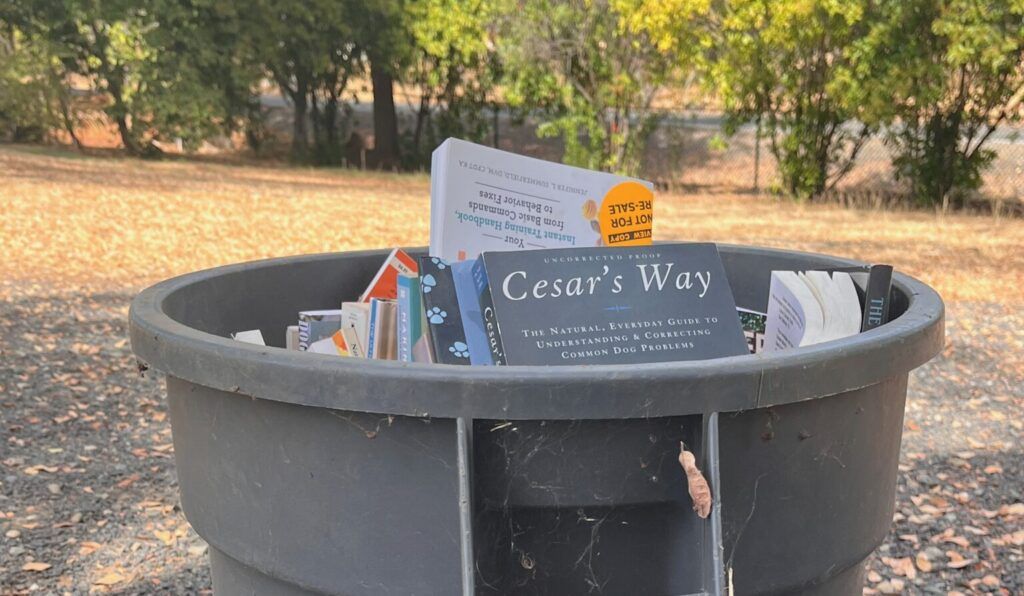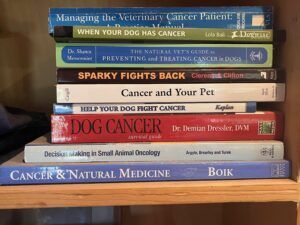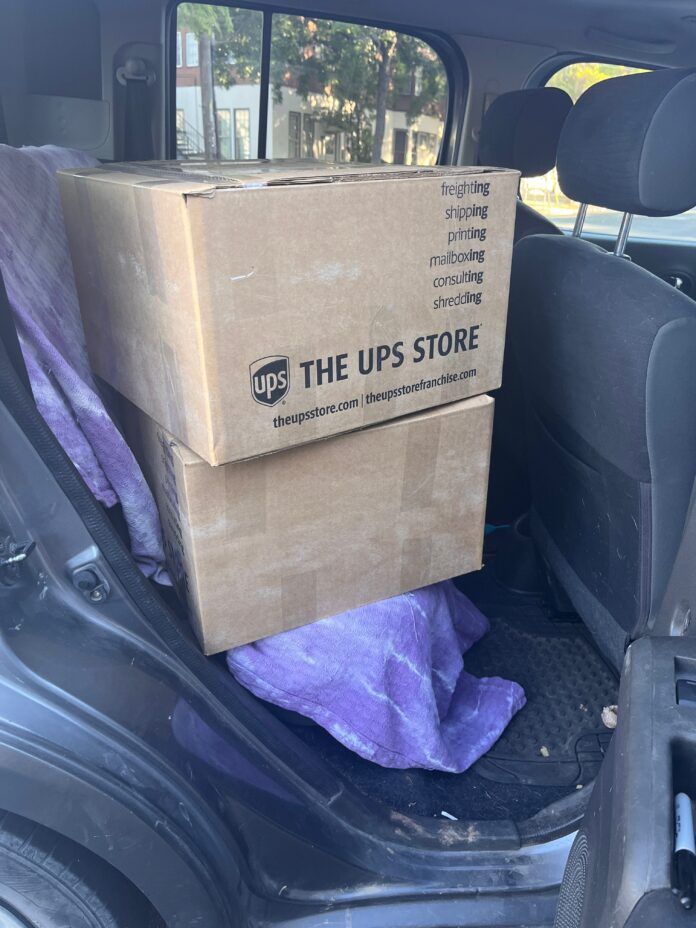Here’s a sign of changing times: I am working to reduce the amount of stuff in my office, and my bookshelves are my current target. For years, I have held to my limit of three 6-foot by 3-foot shelves to hold my resource library of dog-related books, but as I reduce my responsibilities for WDJ, I would like to gain space in my office for other uses.
Keeping my book collection to only three tall shelves has taken ongoing effort. At least once a year, I’ve had to give the shelves a critical pruning, throwing away titles that contained either incomplete or poor information and donating to my local library books that were of good quality, but not something that I planned to refer to again and again.
The books that contain incontrovertibly useful, accurate information—the ones that I still consult when in doubt about someone’s facts, or to check their spelling or description of a medical condition—I have boxed up and mailed to WDJ’s new Executive Editor, Kate O’Connor. With a receipt from the United States Postal Service in hand, I can tell you that I have shipped 96 pounds of books to Kate. Some are veterinary school textbooks—massive, weighty tomes that we use to fact-check articles. Some are expert compilations of information on using herbs, nutritional supplements, massage, acupressure, and other alternative or complementary healthcare methods. All of the books written by Pat Miller, WDJ’s guiding light on training and behavior for many years—Kate can use these to make sure WDJ’s training advice is consistent and clear.

There were many, many books that contain great information on specific topics: caring for senior dogs, managing kids and dogs, doing agility with dogs, teaching tricks to dogs, puppy training, dealing with housetraining problems, and so on—way too many books to send to Kate, but also, probably far too many to donate to my local library. Happily, my friend Sarah Richardson, owner of The Canine Connection (a boarding, daycare, and training facility in Chico, California), said she would be happy to host a dog-book lending-library at her facility, and so I delivered several boxes of books there. I am thrilled to know that I can visit the books there and even borrow some back if need be.
As much as I want to clear my bookshelves entirely, I kept finding myself holding onto certain books—even ones that I know Kate would find helpful. There are a bunch of books about pet food that I can’t part with yet; I know I will be referring to them for years to come. I also kept books written by people who have either become my friends, or who feel like old friends because of my familiarity of appreciation for their words. And I couldn’t yet part with a small stack of books on canine cancer that I haven’t had time to fully explore yet.

So, beyond just two shelves of the books I’ve kept, now all I have to do is slowly file the rest of the books into my recycling barrel. You see, in addition to all the books I loved and consulted, over the years, I also kept several shelves of really bad books for reference. Do you know how many books of recipes for home-prepared dog diets are out there that fail to provide complete and balanced recipes for dogs? SO MANY BAD RECIPE BOOKS! Many of them provide recipes that lack ingredients that supply critical minerals, some omit discussion of customizing recipes for dogs with health problems, some fail to address the needs of large-breed puppies, and others omit measurements of protein, fat, or calories provided by the recipes they publish.
Hey! We need to publish an updated article about the BEST books on home-prepared diets (was our last article on that topic really in 2011??). I’ll talk to Kate about that.
I also kept bad training books for occasional reference—usually, when I was just trying to track down the source of some garbage advice or theory, such as the idea that owners should eat before their dogs are served, or how pinch collars replicate a mother dog’s grasp on her errant puppies’ scruff.
But honestly, I think the recycling bin is the best spot for the bad books; while they couldn’t cause any trouble on my shelves, I wouldn’t want them to inadvertently fall into the wrong hands.







Well, I’m sure Kate will appreciate having your stash of books…once she recovers from the shock of the UPS delivery!! Some time ago I did the same thing with my home library…fortunately, my local Friends of…library benefited from most of them! Hope you’re well–I know that like me, you must be reveling in these finally-cooler temps. It felt like summer was going to last forever!
What are the very best books on home diets for dogs? I’ve been making my dog’s food for years, just reading everything and trying to get it right. Maybe if I could just concentrate on 2 or 3 of the best books, I could check myself!
Click on the link in the post to see our recommendations from 2011, they still stand up! And we will work to prepare an updated list.
Loved this article because I am I the same process after retiring from dog training last year! I am a volunteer book sleuth for my local Friends of the Library so I am in a position to remove bad and dangerous training books from circulation. Unfortunately, I have found that even good training books do not sell here—even for $1 a volume during our 2 book sales each year. So I now have 10 boxes of my treasured tomes stacked in my former office as I wait for inspiration on what to do with them. Any suggestions would be appreciated.
I would like to know which books to give/toss and which to keep. I have noticed the change in dog training , diets etc. through the years. There is no reason for me to keep outdated information. I LOVE reading WDJ. Have done so for 10 years now.
I would love an updated article on making home made dog food. I’ve developed my own recipe but have yet to run it by my vet and I don’t feed it exclusively, they are still on kibble with the home made added.
Dr. Karen Shaw-Becker’s Real Food for Healthy Dogs & Cats has been a staple resource and go to for the last 15 years. Pleased to see it on Mary Strauss’ list. Other books worth mentioning are: Natural Nutrition for Dogs and Cats, by Kymythy R. Schultze and Home Prepared Dog & Cat Diets, by Patricia Schenck.
It hurts my heart to read that you are reducing your Whole Dog Journal responsibilities. I was hoping that you would always be our “dog guru”.